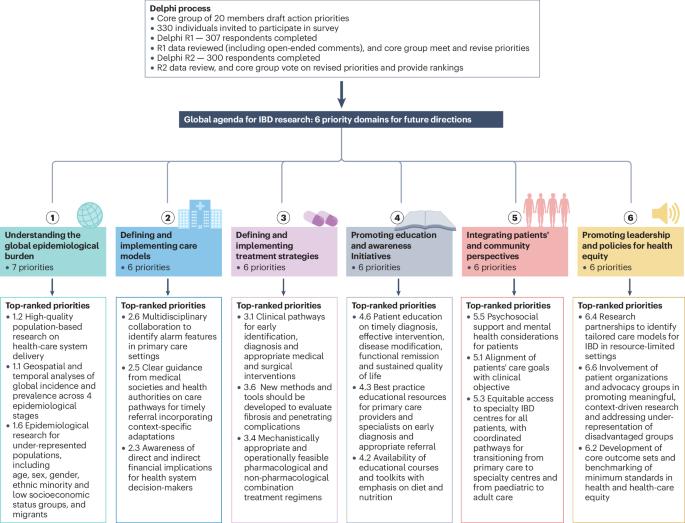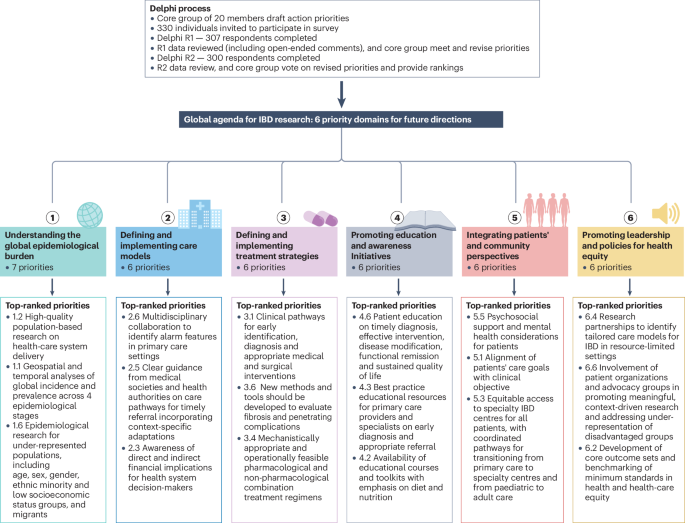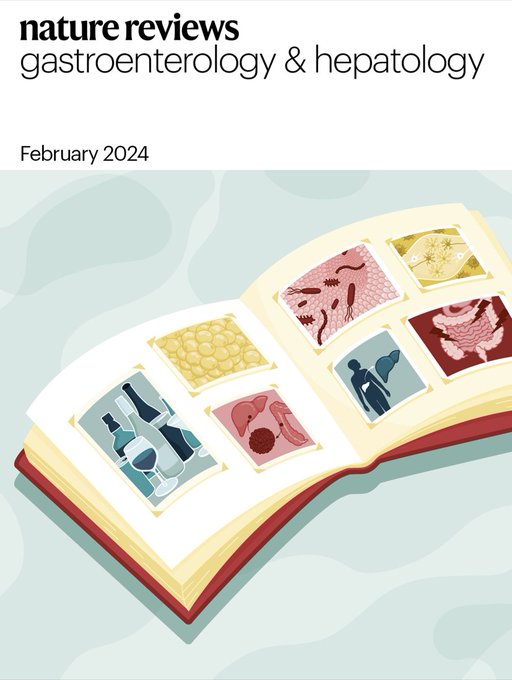塑造炎症性肠病的未来:改善管理和公共卫生应对的全球研究议程
IF 51
1区 医学
Q1 GASTROENTEROLOGY & HEPATOLOGY
引用次数: 0
摘要
炎症性肠病(IBD)是一个日益严重的全球健康挑战,影响全世界700多万人。随着包括儿童和青少年在内的所有年龄组的患病率不断上升,IBD给卫生保健系统和社会带来了巨大压力,导致直接医疗费用高、生产力损失和生活质量下降。尽管治疗取得了进步,但疾病控制欠佳,及时诊断和适当治疗的延误仍然存在。在获得保健服务方面的区域差异加剧了这些挑战,特别是在低收入国家。解决这些不公平现象对于改善全球IBD结果至关重要。来自临床护理、研究、公共卫生和宣传(包括患者代表)的专家使用德尔菲法确定了六个领域(共37项声明)的优先事项:流行病学、护理模式、治疗策略、教育和意识、患者和社区参与以及促进卫生公平的领导。这些优先事项强调量化IBD负担、解决卫生保健差异、验证护理模式、探索新的治疗方法、推进教育、吸引患者参与和倡导卫生公平政策。综合办法力求优化护理模式,促进患者参与,并确保公平获得保健服务。确定的优先事项可作为临床和非临床研究人员以及致力于IBD相关倡议的资助者的指南,促进国际合作,以改善IBD管理并减少其全球影响。本文章由计算机程序翻译,如有差异,请以英文原文为准。


Shaping the future of inflammatory bowel disease: a global research agenda for better management and public health response
Inflammatory bowel disease (IBD) is a growing global health challenge affecting more than 7 million people worldwide. With increasing prevalence across all age groups, including children and adolescents, IBD places substantial strain on health-care systems and society, resulting in high direct medical costs, lost productivity and reduced quality of life. Despite therapeutic advances, suboptimal disease control and delays in timely diagnosis and adequate treatment persist. Regional disparities in health-care access contribute to these challenges, especially in low-income countries. Addressing these inequities is crucial for improving global IBD outcomes. Using a Delphi methodology, experts from clinical care, research, public health and advocacy (including patient representation) identified priorities across six domains (37 statements in total): epidemiology, care models, treatment strategies, education and awareness, patient and community engagement, and leadership to promote health equity. These priorities emphasize quantifying the burden of IBD, addressing health-care disparities, validating care models, exploring novel treatments, advancing education, engaging patients and advocating for health equity policies. The comprehensive approach seeks to optimize care models, promote patient engagement and ensure equitable access to health care. The identified priorities serve as a guide for both clinical and non-clinical researchers, and funders dedicated to IBD-related initiatives, fostering international collaboration to improve IBD management and reduce its impact globally. Inflammatory bowel disease (IBD) is an immune-mediated disease with substantial burden worldwide. In this Consensus Statement, a global multidisciplinary group of experts identify key priorities and recommendations to raise awareness and advance IBD care and research.
求助全文
通过发布文献求助,成功后即可免费获取论文全文。
去求助
来源期刊
CiteScore
52.30
自引率
0.60%
发文量
147
审稿时长
6-12 weeks
期刊介绍:
Nature Reviews Gastroenterology & Hepatology aims to serve as the leading resource for Reviews and commentaries within the scientific and medical communities it caters to. The journal strives to maintain authority, accessibility, and clarity in its published articles, which are complemented by easily understandable figures, tables, and other display items. Dedicated to providing exceptional service to authors, referees, and readers, the editorial team works diligently to maximize the usefulness and impact of each publication.
The journal encompasses a wide range of content types, including Research Highlights, News & Views, Comments, Reviews, Perspectives, and Consensus Statements, all pertinent to gastroenterologists and hepatologists. With its broad scope, Nature Reviews Gastroenterology & Hepatology ensures that its articles reach a diverse audience, aiming for the widest possible dissemination of valuable information.
Nature Reviews Gastroenterology & Hepatology is part of the Nature Reviews portfolio of journals.

 求助内容:
求助内容: 应助结果提醒方式:
应助结果提醒方式:


